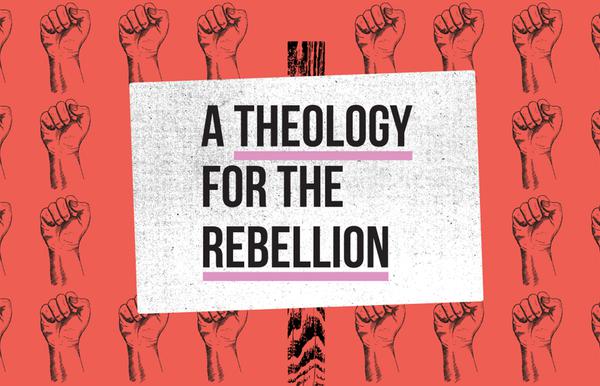‘Key work’ or not, youth work is essential not only for the millions of vulnerable young people in need, but for society as a whole. Can the government—and the church—recognise that?
Being a youth worker can precariously teeter between being invigoratingly rewarding and overwhelmingly challenging at the best of times. And if you’re anything like me, those feelings have been amplified a hundredfold over the past couple of months. Reading this article, published in The Guardian, immediately brought these emotions to the surface again, and if I’m honest I was left feeling pretty raw once I had put it down.
Hearing stories of how so many different youth workers (and others) across the country have gone above and beyond their job roles in order to continue to provide some kind of service for young people fills me with a huge sense of pride at being part of this community. And yet, when articles like this explicitly state the extensive need in black and white, I am also filled with despair at the breadth of it, frustration at the many different circumstances that contribute to it, anger at the cuts to youth services which limit the ability to tackle it, and a resolute determination to regardlessly continue to try and do all that I can to reduce it. But, above all, I am reminded afresh how essential youth work is to not only those who benefit directly from it, but to our society as a whole, and that fills me with great hope.
I am not here to debate whether youth work should be seen as key work by the government, as I think the term ‘youth work’ is very broad, and how it is defined, as well as pinpointing what its specific purpose would be if it were to become key work, are imperative elements of this decision. I do, however, want to encourage those reading this, that whether it is officially stated or not, your work is and will continue to be, both now and in the months to come, indispensable. And my prayer is that not only the government, but the church as well, will awaken to this fact.
Time to wake up
Youth work has been under pressure for many years, and the impacts of the coronavirus have merely highlighted this. Yet, youth workers continue to stubbornly persist in their roles because the need is so great. Despite huge funding cuts, little resources, and basically no advocacy, youth workers are still fighting to help meet young people’s needs; many choosing to do so in a voluntary capacity too. And I have little doubt that this is something that our world will be forced to rely upon in the months to come.
Yes, it is true that many obstacles have forced youth work to evolve, develop, innovate, and often, very sadly, to reduce in provision over the years. We have seen even more evidence of this during the past couple of months: youth workers have adjusted to new ways of engaging with young people via online platforms; have developed creative ways to offer support outside of that space; and have managed these challenges alongside reduced teams and home working restrictions.
"If there was a colossal need before it has now been tripled, and schools, mental health services, social care, and all other services that support young people, are going to be desperate for help to even begin to meet it."
But, despite all the difficulties involved, youth workers are still committed to putting young people first, and the challenges often only make us more resolute in this pledge. And as we move forward into what will at some point become a time of returning to ‘normal’ life, recovering from the effects of the coronavirus and lockdown, and adjusting to whatever the world looks like as a result, youth work is going to be needed even more than ever, whether it is labelled as key work or not. The Guardian’s article shares the National Youth Agency’s research that there are now 2 million more (and 3 million in total) vulnerable young people in England due to this pandemic. That's huge. If there was a colossal need before it has now been tripled, and schools, mental health services, social care, and all other services that support young people, are going to be desperate for help to even begin to meet it.

The church & youth work: they need each other
Yes, the government needs to step up and provide a much larger amount of funding and resources so that youth workers can continue to do what they do best. But my plea is also to the church. As our country reels, and gradually, slowly, begins to take steps on the road to some form of recovery, young people, their families, and all those who play any kind of role in their lives, need churches to recognise the importance of youth work. If 3 million young people are now considered vulnerable, and as Christians we have any sort of belief that Jesus’ heart is for the most vulnerable, we cannot ignore the need to make more effort in reaching out to young people any longer. We must support youth workers. We must make young people a priority in our churches. We must partner with those who have the skills, knowledge and experience we don’t. And we must have fresh revelation of how essential youth work is, whatever it may look like.
We don’t know what the next few weeks are going to hold, let alone the months beyond that. But what I do know from observing the resilience and commitment of the youth work community not just over recent months, but the past decade of austerity too, is that young people will remain the focus. The services we offer will need to develop and in some cases be stripped back, but the goal is and always will be to help meet young people’s needs. And instead of seeing this new phase of life as a negative, let’s see it as an opportunity for innovation, creativity, and a sharpening of vision. Let’s see it as a chance to partner together more regularly in delivery and be more united in heart. And let us, as a church, recognise and be bold enough to step into the space that is available for us to join anew in Jesus’ mission to love the most vulnerable.









